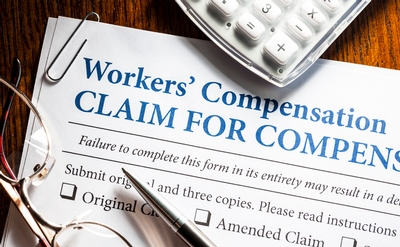How Does a Workers' Compensation Claim Affect a Personal Injury Claim?
Related Attorney: Timothy E. Dinan
February 7, 2024
A workers’ compensation claim and a personal injury claim are two separate legal processes that can arise from a workplace injury. The specifics of how a workers’ compensation claim affects a personal injury claim can vary depending on the jurisdiction and the circumstances of the case. Here are some general considerations:
- Exclusive Remedy: In many jurisdictions, including the United States, workers’ compensation systems are designed to provide benefits to employees who are injured on the job. In exchange for receiving workers’ compensation benefits, employees typically give up their right to sue their employer for personal injury in civil court. This is known as the “exclusive remedy” provision, which restricts employees from pursuing a personal injury claim against their employer.
- No-Fault System: Workers’ compensation is a no-fault system, meaning that employees are generally entitled to benefits regardless of who was at fault for the workplace injury. It provides a more streamlined and efficient process for injured workers to receive compensation for medical expenses, lost wages, and disability benefits without having to prove negligence or fault on the part of the employer.
- Limited Damages: Workers’ compensation benefits typically cover medical expenses, a portion of lost wages, and vocational rehabilitation. However, they generally do not provide compensation for pain and suffering or punitive damages, which may be available in a personal injury claim.
- Third-Party Liability: In some cases, a workplace injury may be caused by the negligence of a third party who is not the employer or a co-worker. In such situations, the injured employee may be able to pursue a personal injury claim against the third party in addition to filing a workers’ compensation claim. This allows the employee to seek additional compensation for damages not covered by workers’ compensation, such as pain and suffering.
- Subrogation: When an employee receives workers’ compensation benefits and also recovers damages through a personal injury claim against a third party, the workers’ compensation insurer may have the right of subrogation. Subrogation allows the insurer to recover a portion of the benefits paid to the injured employee from the proceeds of the personal injury settlement or judgment.
These types of cases can be complex and it is important to consult with an attorney who specializes in both workers' compensation and personal injury law to understand how these claims interact in your specific situation. They can provide guidance on navigating the legal process, assessing potential damages, and maximizing your overall recovery.
Questions? Contact Tim Dinan at tdinan@lcrlaw.com, or (973) 729-1880.
See our previous blog post here.


















